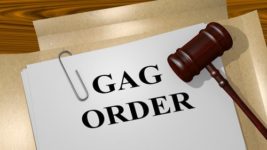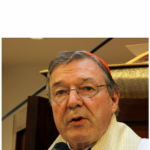Journalists Threatened with Criminal Charges Over Reporting of Pell Conviction

It has been reported that Victoria’s Director of Public Prosecutions has threatened to press charges against up to one hundred journalists over allegations they breached a Supreme Court suppression order by publishing information in or shortly after December 2018 which could have led readers to realise that Cardinal George Pell had been convicted of sexual offences against children.
Conviction sends shockwaves
In mid-December last year, Australia’s highest ranking Catholic was convicted of sexually assaulting two choir boys shortly after being appointed Archbishop of Melbourne in 1996.
The proceedings were subject to a suppression order which, among other things, prohibited anyone from publishing information that would enable others to ascertain the identity of the accused or the details or outcome of the case. The order has force across Australia.
The basis for the order was that Pell was facing another trial for allegedly interfering with two boys at a public swimming pool in Ballarat in the 1970s, and that the release of information about the first proceedings would unfairly prejudice the Cardinal.
However, the conviction of George Pell was reported in several international publications and sent shockwaves across the globe.
The Washington Post, for example, reported that:
“Cardinal George Pell has been found guilty in Australia of charges related to sexual abuse, according to two people familiar with the case and other media reports, becoming the highest-ranking Vatican official to face such a conviction”.
Many observed that news of the conviction was listed in Google news and ‘trending’ on Facebook. Frankly, it was very difficult for anyone following crime news to ignore.
Local reporting
A number of Australian media outlets then released extremely vague reports to the effect that a high-profile figure had been convicted of a criminal offence.
The Age, for example, reported that a ‘‘high-profile figure’’ had been convicted of a serious crime, and the Herald Sun published a black front page with the word CENSORED in large white letters.
Threats to reporters
The Victorian Director of Public Prosecutions, Kerri Judd, QC, is reported to have sent up to one hundred letters to Australian media organisations last month warning their conduct may amount to contempt of court and asking them to explain their publications.
Journalists and senior staff at media outlets including The Age, The Sydney Morning Herald, The Financial Review, Channel Nine, News Corp publications, Crikey and several radio stations face what County Court Judge Kidd has described as ‘‘the prospect of imprisonment and indeed substantial imprisonment’’.
The DPP wrote in a number of the letters:
‘‘It is my opinion that the above publication breaches the suppression order, has a definite and real tendency to interfere with the administration of justice and therefore constitutes sub judice contempt, is contemptuous by reason of it scandalising the Court, and aided and abetted contempts by overseas media”, adding ‘‘At present, I intend to institute proceedings for contempt against you.’’
Guidelines for reporting criminal cases in NSW
The NSW Supreme Court provides media guidelines for reporting on criminal proceedings.
Among other things, these guidelines direct reporters that:
GENERAL REPORTING PRINCIPLE – FAIRNESS
In active legal proceedings, it is a criminal offence (contempt) for media organisations to publish or broadcast material that has, as a matter of practical reality, a tendency to interfere with, or prejudice, the due course of justice in the particular case.
In addition to compromising the right of an accused to a fair trial, unfair, unbalanced or careless media reporting can also influence potential jurors and witnesses. Judicial officers are generally considered to be immune to media influence; nevertheless, they encourage fair and accurate reporting.
JURY TRIALS AND JURORS
When reporting a jury trial, the media may only report what is said and done in Court and in the presence of the jury. Journalists are not entitled to include in their reports personal comments or conclusions in relation to what has happened or what is likely to happen.
Under the Jury Act 1977, it is an offence for the media to disclose the identity or address of a juror, although former jurors can be identified with their consent. Journalists should not approach jurors to obtain information about jury deliberations.
Journalists should not publish interviews or comments from those involved in cases, including witnesses and friends and family of an accused or victim, until the jury has returned verdicts and has been discharged.
NON-PUBLICATION AND SUPPRESSION ORDERS
From time to time, and to safe guard the administration of justice, a Judge may make an order under the Court Suppression and Non-publication Orders Act 2010. The Court’s Media Manager circulates these orders to an opt-in email list of journalists and media lawyers.”
Judges do not need to make orders where the law already provides automatic protections such as in the case of children and sexual assault complainants. Journalists are expected to be aware of relevant legislation.
Ignorance of the law is no excuse when it comes to the requirements of the Court Suppression and Non-Publication Orders Act 2010, the Jury Act 1977 or the laws on contempt of court.
Case study
As previously reported a young Sydney journalist was threatened with contempt of court charges after allegedly ignoring protocols and thereby causing a murder trial to be aborted.
Yahoo 7 reporter Krystal Johnson was warned she may face criminal charges after publishing an article which contained information about the murder trial that had not been presented to the jury.
The potential to influence jurors made it necessary to discharge the jury and order a new trial.
Meanwhile, the defendant’s bail continued to be refused and he had to wait behind bars for the fresh proceedings.







